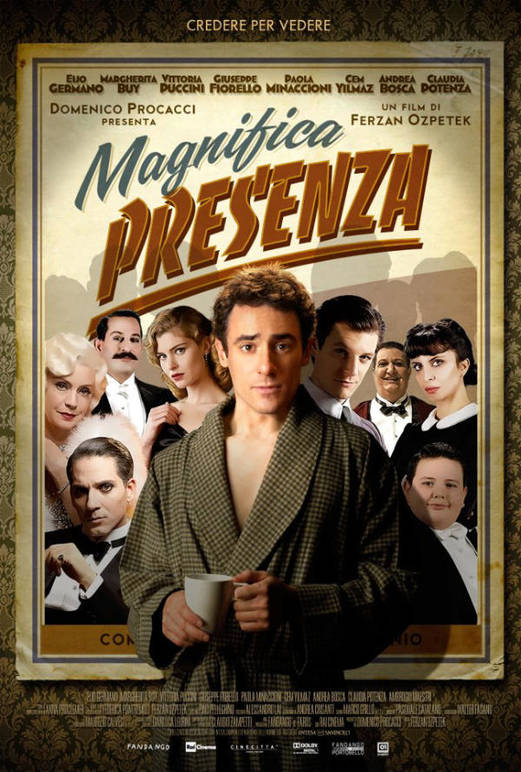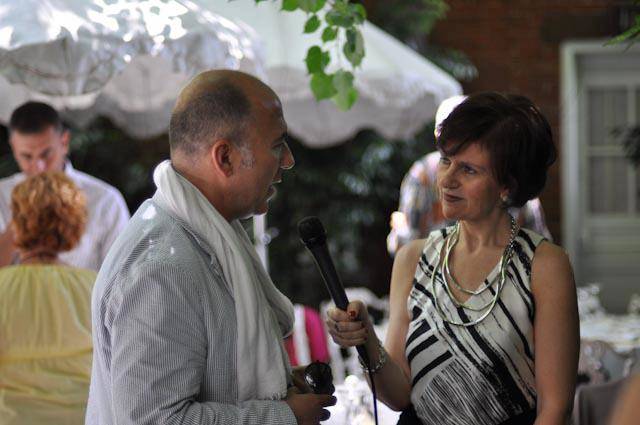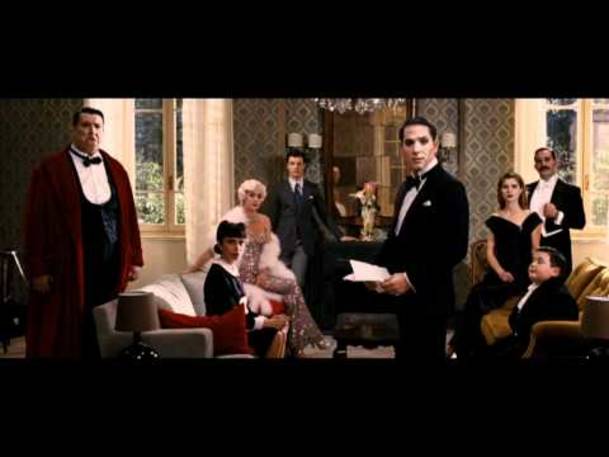Ferzan Ozpetek. Magnifica Presenza Whether in Reality or Fiction
It’s quite ironic that the year the director of the dream-like Midnight in Paris tries to capture the “essence” of Rome (To Rome With Love, Allen) he fails by lining up a series of poorly structured sketches and stereotypes, while an Italian movie set in Rome, Magnifica Presenza (Ferzan Ozpetek) enters proudly in the International realm of imagination, the blurry lines between Art and life, daydream and delusion, theatre and creativity and human needs.
No director likes to be compared so closely to another, and Magnifica Presenza is something entirely different, an outburst of unexpected beautifully human characters a catalog of Ozpetek’s themes and images already prominent in other movies (like auteurs often do) but it helps –especially keeping an American audience in mind – to look at this movie thinking about that crave, that inspiration for a story that answers that ultimate “what if”: what if we could speak to our artistic idols of the past whether they are an idealized theatre company - from a time when acting was glamorous and more stylized, a Roman golden age destroyed by WW2 – or Hemingway and Salvador Dali? What if the artistic journey one is pursuing in their everyday modern life can only be achieved by putting ourselves in someone else’s shoes? As movies always teach us is it true that by figuring out someone else’s life one always learns more about their own? Can surrealism sometimes be more realistic than what it seems?
Ferzan Ozpetek takes this artistic need literally and blends it with the perfectly constructed psychology of his character like he does in many other movies.
The movie opened the annual NY Film festival Open Roads organized by Antonio Monda and Richard Pena at Lincoln Center – which brings from Italy a series of contemporary movies, directors and actors to the US market and critics. Perhaps to start with an “understated” and clever hymn to theatre, art, imagination is always a good choice for a festival.
In Magnifica Presenza, the protagonist, Pietro (Elio Germano) is a unique 28 years old man. He’s kind and loving, he dreams of becoming an actor in Rome with a purity that is humorously undermined by his more cynical and comical female cousin, Maria (Paola Minaccioni) a somewhat serious lawyer who’s trying to help him settle in Rome, especially with the process of renting a house.
They find the perfect one and after paying a unusually high deposit for the first four months, Pietro moves in, enthusiastic about the place, eagerly waiting for jobs, auditions to go well to come his way and somewhat passively tries to build or fix some relationships. Basically he needs to “learn” how to act and how to live and love maturely themes that intertwine but that luckily don’t keep the movie from going in other places. Suddenly interesting “presences” come to visit, give advices, dress elegantly and extravagantly and they act, sing, recite monologues…A mystery must be solved about these presences…and the space in between this life and something that goes beyond it… Through glimpses of a beautifully shot sequence that shows a night at a theatre in the 40s we know something happened…but what?
Beware, this is not a parody of a haunted house, nor takes the genre that lightly.
There’s still that real tension, very psychological of a character left alone in a strange house, of what can be considered fear, then confusion, then possibly (especially by others) madness, but then comedy creeps in, the director’s self-awareness creeps in.
This is not even Play It Again Sam, but more of a Purple Rose of Cairo type of vibe. Whereas Allen used a sort of neurotic self-deprecation and irony Ozpetek takes from his deepest themes: friendship without labels, the need of a “second family”, very different from the one you’re born in, made of characters that interact with each other in their eccentricity and unconditional affection (Like in Saturn in Opposition and The Ignorant Fairies) and the social political commentary is not intellectual but lived. It makes sense that the quote an American can respond the most is the Tennessee Williams’ one, spoken by one of the characters in Magnifica Presenza: “I’ve always depended on the kindness of strangers.” And it’s all about the interactions with strangers, presences that are nosy but never invasive.
Even the theme of homosexuality, which obviously plays a role in the theatrical world (make-up, costumes becoming something you’re not) is more Shakesperian than a “manifesto”. You learn more about yourself, wearing a mask, believing in what is not necessarily defined by the rules of reality, can make your life more real. It’s Midsummer Night’s Dream in 2012 Rome.
The concept goes beyond boundaries and could take place anywhere, much like the Allen’s movie could have been made in Manhattan and the door to his imaginary Parisian world could have been a Jazz bar in Harlem, yet it is a very Italian movie, and shows a lesser known side of Italy.
I was curious - as some people in the audience were as well - why the director insisted a lot on a collection of cards from the Italian Risorgimento, the “revolution” that lead to the Unity of Italy. There is an emphasis on Italian heroes and “founding fathers” like Garibaldi, Mazzini, Cavour and Ozpetek - born in Istanbul but who has lived in Italy since he was in his 20s - has explained that it was an explicit homage to the 150th anniversary of the Unity, and that he wanted to juxtapose that unity to the division, chaos and issues that his country faces nowadays.
If you really know Italy you can also catch glimpses of references to Italian theatre history. The main flashback scenes are shot in the Teatro La Valle where the playwright Pirandello played his shows. Pirandello’s writing that embodied the spirit of this movie, characters escaping the writer’s mind, others taking o fictional identity or always going from reality to fantasy. There’s also the specter of a real History of Fascism and Nazism, the toll it took on the common people in Rome, the outsiders, and a bit of modern pop culture.
The setting of course is as beautiful as the city itself, but definitely stays away from the touristy spots.
At a first look I almost feared that certain lines are so blurry that you don’t get that “satisfaction” of a character actually learning something (which he still does but in a less defined way) but then thinking about it again I appreciated this aspect a lot more.
Yes he does learn about acting and love but the movie doesn’t take those two plotlines seriously. I wondered why and then I thought about Ozpetek. In his movies it’s not just the actors who act but often every characters goes through a physical or mental transformation, and Love is never just a traditional relationship whether heterosexual or homosexual. Love is between these unique groups, these unexpected connections between people who are not the same age (children and adults), the same gender, who don’t have the same background. It’s ever in a couple, never between two people, but always as a “company”, a group, a small settlement.
As the director said at the end during the Q & A the conflict in the ending becomes less about reality and fiction and more about the fact that the character of Livia Morosini, the older actress, “feels superior artistically and in many other ways but she’s living alone. Pietro in his confusion is not alone. Nor are the other members of the theatre company, they are young – ageless - and all together” and being young means recognizing the potential for connections whether in reality or fiction.
More info: OPEN ROADS WEB SITE





































i-Italy
Facebook
Google+
This work may not be reproduced, in whole or in part, without prior written permission.
Questo lavoro non può essere riprodotto, in tutto o in parte, senza permesso scritto.